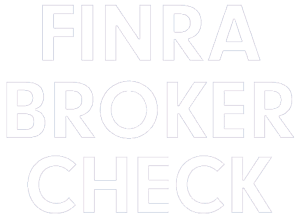Saving for retirement is important, but it’s also crucial to stay informed! Here are some key points to keep in mind.
There’s an old saying that goes something like, “What you don’t know can’t hurt you.” You might have even used it, maybe when you came home past curfew or spilled juice all over the couch cushions. And sure, it might have worked when you were young, but in retirement, what you don’t know actually CAN hurt you.
It’s important to stay informed about not just past trends, but also what you should expect as you make your way through this exciting phase of your life called retirement. It can give you a better chance to prepare for potential obstacles and risks, and implement a plan to overcome them. It can also help you take advantage of opportunities, especially as you look to make your money last for a quarter of a century or longer. Let’s go over five things you need to know about retirement.
- Market Downturns WILL Happen
Over a retirement lasting several decades, it’s not a question of “if” you’ll encounter market downturn; it’s a question of “when.” These declines are typically referred to as “bear markets,” which are defined as market drops of 20% or more.
Historically, patience has been one of the most effective ways to navigate market downturns, as markets tend to recover and grow over the long term. Working with a financial professional can help you create an investment portfolio aligned with your individual goals and risk tolerance. Those with a higher risk tolerance or a longer timeline until retirement may choose to invest more heavily in the market, while those nearing retirement often prefer safer alternatives to protect their savings.
Rebalancing your portfolio as you approach retirement is a common strategy to reduce risk, particularly to address sequence of returns risk. This risk occurs when retirees experience market declines early in retirement, which can significantly impact their savings due to the timing of withdrawals. Financial professionals can assist in managing this risk by recommending investment allocations that include assets less affected by market volatility or by establishing supplementary income sources that help you weather market fluctuations.
- Decumulation is Just as Important as Accumulation
Everyone hopes to retire comfortably with substantial savings and successful investments. The phase of building your assets through growth-oriented decisions is known as the “accumulation” phase. However, accumulating wealth is only part of the equation. Having a clear plan for how to use those funds during retirement, the “decumulation” phase, is equally important.
A decumulation plan typically involves creating a reliable income stream to support your desired lifestyle and developing a comprehensive budget to manage your expenses. Many factors influence this phase, including taxes, legislation, life expectancy, spending habits, and unexpected costs.
It is advisable to estimate your anticipated annual expenses, allowing for some flexibility to cover emergencies or unforeseen needs. Assessing your retirement goals and calculating the funds needed to achieve them helps form a realistic budget to follow throughout retirement. Starting to plan before retirement begins is critical, as adjusting spending habits later can be challenging. In fact, some retirees find they need more income during retirement than they did while working.
- It’s Never Too Early to Prepare
Think about it. You reach the most exciting period of your life, your retirement accounts are as well-funded as they’ll ever be, and you have an endless list of things you want to do now that your time belongs entirely to you. Will you want to pull back? Not likely. That’s why it’s important to start preparing for retirement long before you call it a career, giving you the flexibility to course-correct if you find that you haven’t saved enough to live comfortably.
While estimates of how much to save vary based on individual circumstances, it’s common to hear that accumulating enough to replace a substantial portion of your working income is a solid goal. Consulting with a financial professional can provide personalized guidance tailored to your unique situation.
- Social Security May Not Suffice
For many retirees, Social Security is a major source of income, with some relying on it for a significant portion of their retirement funds. However, Social Security was designed as a supplement to other income sources, not a primary income replacement. Potential changes to Social Security’s funding and benefits may impact future payouts, making it essential to consider additional savings and income streams when planning for retirement.
- Risk Runs Rampant in Retirement
Longer life expectancies mean more years to fund, increasing the risk of outliving your savings. Inflation, taxes, market fluctuations, healthcare expenses, and long-term care needs can all pose significant financial risks during retirement.
Long-term care is a particularly costly expense, at an average cost of more than $9,000 per month for a shared room in a nursing facility. Many retirees will require some form of it, and Medicare does not cover most long-term care costs. Medicaid is different than Medicare. Medicaid assistance often requires spending down assets, which can potentially bankrupt a spouse and drastically affect what’s left for heirs.
Modern insurance options, such as hybrid life insurance policies, can offer coverage for long-term care needs while also providing a death benefit if the care is not needed. These products are not right for everyone, but a financial professional can help you evaluate your options and decide what aligns with your goals.
If you have any questions about how you can better prepare for retirement, give us a call today!
This article is provided for information purposes only, and should not be construed or relied upon as tax, legal or financial advice. In all cases, you should consult with your own tax, legal and financial advisors for recommendations about your unique situation and set of circumstances before establishing, making decisions or establishing a retirement plan.
Sources:
- https://en.wikipedia.org/wiki/List_of_stock_market_crashes_and_bear_markets
- https://www.forbes.com/advisor/investing/bear-market-history/
- https://www.investopedia.com/8-ways-to-survive-a-market-downturn-4773417
- https://www.cbsnews.com/news/retirement-delay-social-security-benefits-gen-x-over-50/
- https://www.genworth.com/aging-and-you/finances/cost-of-care




